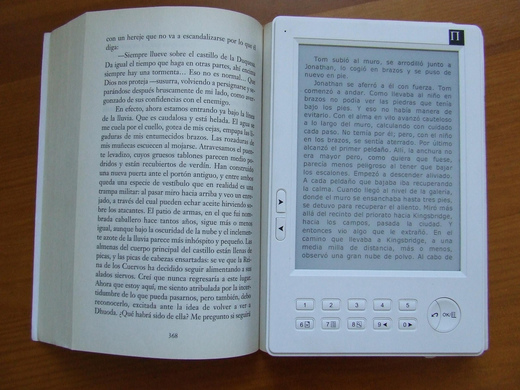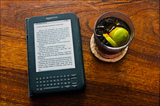
I was reminded the other day that 17 years ago I developed one of the first ever online magazines. Sounds like a bold claim? So let me take a couple of steps back.
At the time I was running two glossy design and architectural magazines, and together with a partner we came up with the brainwave of an online magazine. British Telecom showed early interest because it could be a handy adjunct for their plans to expand video-telephony, but broadband was at that point undeveloped on a wide-scale (ISDN was the only option), so picture quality and speed was restrictive.
Enter into the fray, Reuters, who did have a broadband network for news-feeds and financial data and were attracted by the idea of their traders having an online magazine to shop for anything from a bottle of wine to a Porsche in between trades.
So I designed and developed the first online magazine prototype for Reuters simply because at that time few had the bandwidth to carry it and the internet was in its infancy. The internet was in fact what led to the project stalling a year later because Reuters - and rightly so - wanted to 'wait and see' how that developed. So meanwhile I joined a political magazine and wrote another book, and suddenly I had both feet back in the print-publishing camp - again.
In the following years as the internet developed there was much talk about print books becoming redundant and electronic media taking over completely. But for me, two factors would always hold this back: many people worked all week on a computer, so the last thing they'd want to do is spend their leisure time also strapped to a computer. Second, portability. The ease and feel and portability of a book, easily read on a train or on the beach, was one of its main attractions.
Then along came Kindle, Kobo and Nook and these issues were addressed to varying degrees. But as these products made stronger inroads into the marketplace, the last bastion of resistance didn't come from c0nsumers, but from publishers and retailers.
And, taken on face value, that resistance makes sense: having built their empires on a system revolving around the printing and distribution of paper books, the emergence of an alternative which could distribute that same product directly to consumers in milliseconds - thereby cutting them out 0f the cycle - had, for them, distinctly worrying implications.
But I don't think enough publishers are thinking about this threat laterally by at the same time looking at its advantages, in particular in addressing an even deeper, long-standing industry concern: print and distribution costs.
This was something I was keenly aware of from my magazine days: 60% of our revenue went on print and production costs. I also recall one of my first book editors, Richard Evans (who also edited Terry Pratchett) complaining that booksellers often only noticed the returns on a book rather than how many were sold overall. So a book that sold 80% of its 100,000 print run, unfortunately what stuck predominantly in bookseller's minds was the 20,000 returned rather than the 80,000 sold.
So, one target right there for publishers: if they can shift half their sales to ebooks where returns are nil, that would effectively halve their paper returns ratio - surely an advantage?
But so many publishers are focused purely on the threat or are busy adopting high ebook mark-ups to protect their main print market, that all too often these side advantages are being missed.
One of these, as we approach Christmas, comes keenly into focus: packaging. Buying a book for a child, it's hard to say: 'I sent that book directly to your Kindle. Didn't you get it?' Not being able to see, touch and physically unwrap a present simply doesn't have the same feel to it. It becomes somewhat detached, sterile. The expectation and mystique long associated with Christmas gifts is lost.
But if publishers and retailers could work out ways of packaging their ebooks as gifts - along the lines seen with CD packaging - it could breathe new life into the ebook market for high street retailers. Indeed, ebooks could be downloaded directly from distributors - all that would be needed in-store would be quick-fold covers and cases. Again, no returns.
And with a touch more lateral thinking, ebook packaging could also be the next stage in enlivening the BOGOF (buy-one-get-one-free) market. After all, the cost of including an additional ebook with either an existing ebook or print book would be minimal.
But while the industry is focused mainly on trade-protecting against market disadvantages, that sort of lateral-advantage thinking might be slow in arriving.

 RSS Feed
RSS Feed